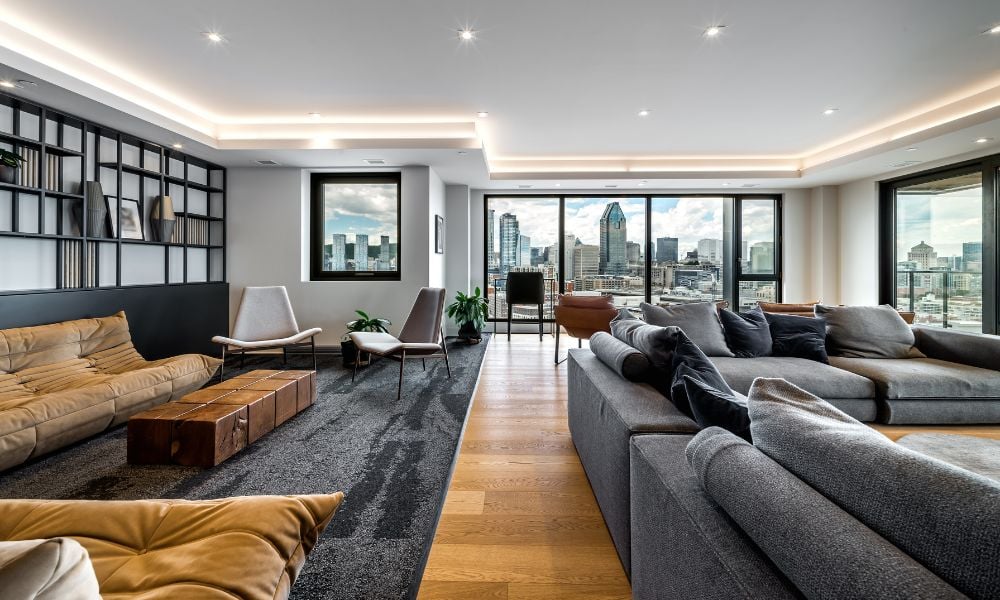Buyers in Toronto and Montreal drive $10 million sales as other markets see luxury pullbacks

A fragile recovery in Canadian real estate unravelled in the first quarter of 2025 as escalating Canada–US trade tensions, new tariffs, and macroeconomic uncertainty sidelined homebuyers and sellers.
According to Sotheby’s ‘International Realty Canada’s Top-Tier Real Estate: Spring 2025 State of Luxury Report’, while the broader residential market declined, ultra-luxury segments in key metropolitan areas showed isolated signs of resilience.
Toronto’s ultra-luxury homes buck downturn
In the Greater Toronto Area (GTA), the ultra-luxury residential market defied national trends.
Sales over $10m rose, with five properties sold on MLS from January to March 2025—none had sold in this range during the same period in 2024.
However, sales over $4m dropped 15 percent year-over-year to 90 units, and $1m-plus sales declined 29 percent to 5,479 transactions.
The city of Toronto recorded four of the five $10m-plus transactions. Ultra-high-net-worth buyers in the GTA remained active, with some transactions taking place off-market as sellers sought privacy.
Despite declining activity in the $1m–$4m range, buyers in top neighbourhoods such as Rosedale and Forest Hill continued to drive demand for select properties.
Montreal shows steady gains
Montreal stood out for defying broader national trends.
The Quebec Professional Association of Real Estate Brokers reported a 14 percent year-over-year increase in overall residential sales in the CMA in Q1 2025.
Sales over $1m rose 11 percent year-over-year to 420 transactions. Eight homes sold over $4m, matching the first quarter of 2024. There were no sales over $10m.
The city saw notable strength in the condominium segment. Condominium sales over $1m climbed 27 percent to 124 units, the highest annual percentage growth among Canada’s major cities.
Although no sales exceeded $4m in Q1 2025, this segment drove overall condo market performance. Falling interest rates and an expanded premium inventory supported the upswing.
Calgary sees stable sales backed by population growth
Calgary’s luxury market maintained stability, buoyed by the province’s population gain of 28,496 residents in Q1 2025, according to Statistics Canada.
Sales over $1m rose 2 percent year-over-year to 450 transactions, with one property selling over $4m compared to two in Q1 2024. No homes sold over $10m.
Single-family homes dominated the top-tier segment, accounting for 80 percent of $1m-plus transactions.
Condominium sales over $1m increased 13 percent to 17 units, all in the $1m–$2m range.
Attached home sales over $1m rose 25 percent to 75 units.
CREB data indicated a 17 percent year-over-year decline in overall residential sales in Q1 2025. Despite this, low inventory levels in the luxury segment maintained sellers’ market conditions in key areas.
Vancouver experiences sharp pullback
Vancouver’s luxury market saw the steepest decline among major cities.
Sales over $4m fell 48 percent year-over-year to 33 properties, and there were no sales over $10m—unchanged from Q1 2024. Residential sales over $1m declined 30 percent to 723 units.
The city's housing market cooled under the pressure of tariffs, economic uncertainty, and sluggish job growth.
According to Greater Vancouver REALTORS, overall residential sales fell 13 percent in March 2025, while inventory rose 38 percent compared to March 2024.
Single-family homes continued to dominate the luxury segment, making up 94 percent of sales over $4m. Sales of these homes dropped 47 percent year-over-year to 31 properties.
Condominium sales over $1m fell 27 percent to 236 units. Only two condos sold over $4m, down from five in Q1 2024. Attached home sales over $1m dropped 28 percent to 233 units, with no homes selling above $4m.
According to Sotheby’s International Realty Canada, Vancouver’s luxury market remains in buyers’ territory with growing inventory and subdued demand, particularly among small-scale investors in the condo segment.
Outlook: cautious buyers, selective gains
According to Sotheby’s International Realty Canada President Effi Barak, the ongoing Canada–US trade dispute has weakened consumer confidence, contributing to the broad slowdown in both conventional and luxury real estate.
However, Barak stated that select segments remain resilient due to population growth, pent-up demand, and the financial strength of luxury buyers.
Barak noted that Toronto’s ultra-luxury single-family home market remains poised for activity, while Montreal has exceeded expectations across all housing types.
Calgary’s market continues to benefit from sustained in-migration.
While conditions remain cautious, Barak added that elevated inventory and soft prices in the luxury condominium segments of Toronto and Vancouver may present opportunities for long-term buyers.
As construction slows and new development pipelines contract, experts anticipate that the constrained future supply could support existing condo values.



